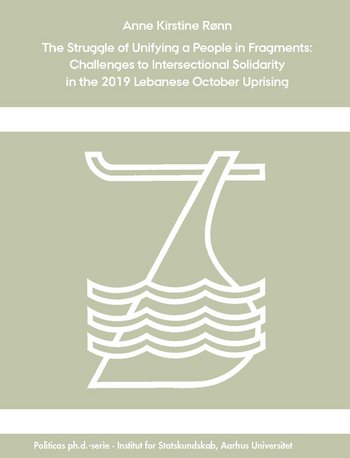Anne Kirstine Rønn
The Struggle of Unifying a People in Fragments: Challenges to Intersectional Solidarity in the 2019 Lebanese October Uprising

In October 2019, Lebanon witnessed the outbreak of mass protests against the country’s sectarian regime. The so-called October Uprising was seen as a historical moment, because it displayed an unprecedented level of unity and solidarity between citizens in a country that has long been associated with division and conflict. However, the uprising also faced difficult challenges when seeking to forge solidarity between citizens across sects and other salient boundaries in Lebanon. The dissertation explores these challenges. Doing so, it contributes to a growing research literature concerning how anti-sectarian social movements can alleviate political sectarianism and promote peace and stability in divided societies. More specifically, it uncovers the important obstacles movement members need to address and overcome in order to foster such change. The dissertation argues that the October Uprising struggled to forge solidarity not only between sects but also across other social fault lines such as class and geography. The backbone of the dissertation consists of three in-depth case studies, which are based on data from 57 days of fieldwork in Lebanon, 108 interviews, as well as extensive text and visual material. The studies illustrate three main challenges to solidarity building. The first challenge concerns the inclusion of sub-segments within the lower classes. The second challenge regards the distortion of protest narratives by the media and political elites. The third challenge concerns the internal disagreements between protesters mobilizing within a shared space.
The book is not available for download.
![]() Ophavsretten tilhører Politica. Materialet må ikke bruges eller distribueres i kommercielt øjemed.
Ophavsretten tilhører Politica. Materialet må ikke bruges eller distribueres i kommercielt øjemed.